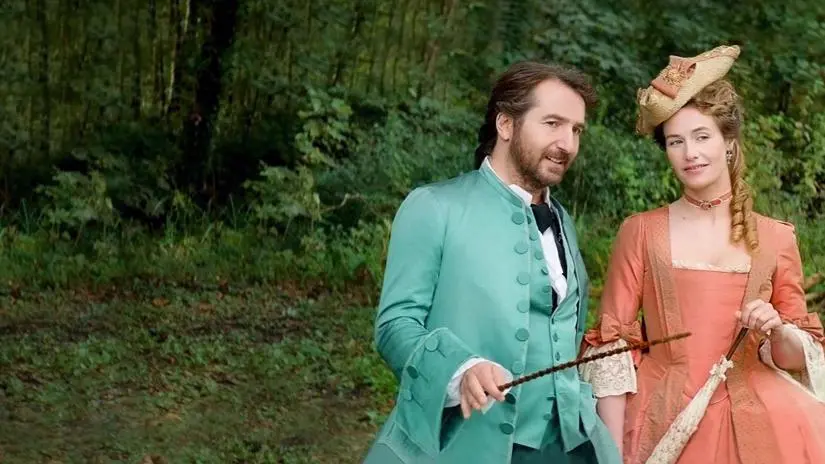Summary
Lady J offers a comic, melodramatic portrait of the privileged behaving despicably, mostly for a lack of anything better to do.
New on Netflix today is a doll’s house brought to frothy life in the opulent French romantic period drama Lady J. Adapted by writer-director Emmanuel Mouret from a slice of the complicated, formally ambitious novel Jacques the Fatalist by Denis Diderot, the film is a funny and absurd insistence that the rich and the French are despicable. Well, maybe just the rich – I was reading between the lines.
Nothing new about that, obviously; you can’t have power without running the risk of abusing it, and the privileged have so much power that often they wield it for lack of anything better to do. Lady J opts to make that point rather than commit to any kind of emotionality, and it’s probably better for it. A woman scorned who has everything is still a woman who has everything, at the end of the day.

The woman in question is Madame de la Pommeraye (Cécile de France), a sexually independent aristocratic widow who is nonetheless seduced and subsequently cheated on by the dick-slinging Marquis des Arcis (Edouard Baer). This goes down predictably poorly, so naturally she concocts a scheme to get revenge which comes to involve a young woman (Alice Isaaz) from whom the film takes its title.
Lavish costuming and production gives Lady J an explicit feeling of artifice, which is clearly intentional; everything and everyone carefully arranged to evoke a very specific sense of place and time, and a certain melodramatic tone. It’s not to be taken seriously, and it won’t be – it is, after all, adapted from an unashamedly comic novel built on interruptions and contradictions, and that proudly turns its nose up at sentimentality. It might be a bit too off-kilter for a mainstream Netflix audience looking for a more traditional period piece, but if Yorgos Lanthimos’s The Favourite could amass such an ardent fanbase, there’s no reason why Lady J couldn’t fill a similar small-screen niche.




